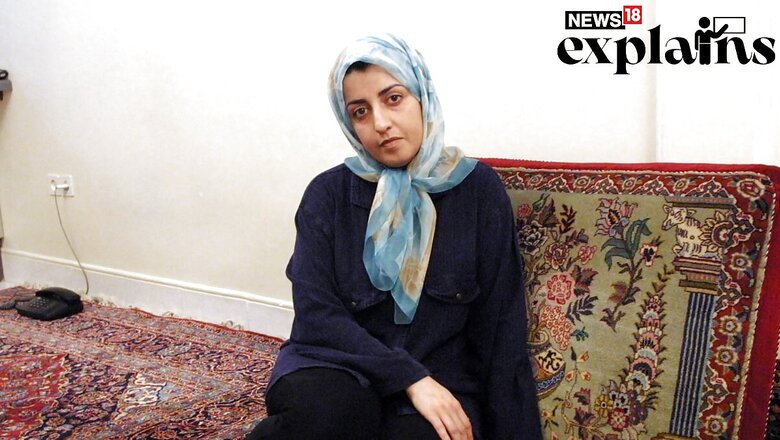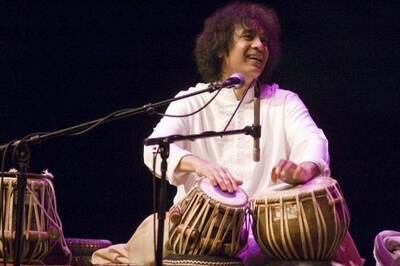
views
Iranian women’s rights activist Narges Mohammadi has been awarded the Nobel Peace Prize on Friday for fighting the oppression of women in Iran.
Mohammadi was picked as the winner of the world’s most significant peace prize among 351 candidates, including 259 individuals and 92 organisations.
According to the Nobel Peace Prize website, she was awarded the prize “for her fight against the oppression of women in Iran and her fight to promote human rights and freedom for all.”
Who is Narges Mohammadi?
Narges Mohammadi has been campaigning for sensitive issues in Iran and has opposed the clerical system and raised her voice against the obligatory hijab. She was arrested in November last year after she attended a memorial for a victim of violent 2019 protests and currently held in Tehran’s Evin prison. She was tried in five minutes in 2022 and sentenced to eight years in prison and 70 lashes.
Mohammadi has been a prisoner for most of the past 20 years. She has been repeatedly jailed for being the voice of the voiceless and campaigning against the death penalty and solitary confinement. She has a long history of imprisonment, harsh sentences and international calls for reviews of her case.
According to a report in the Associated Press, Narges Mohammadi has been imprisoned 13 times and convicted five times. In total, she has been sentenced to 31 years in prison.
Before being jailed, Mohammadi was vice president of the banned Defenders of Human Rights Center in Iran. Mohammadi has been close to Iranian Nobel Peace Prize laureate Shirin Ebadi, who founded the centre.
Campaigned Against Hijab
Mohammadi was behind bars for the recent nationwide protests over the death of 22-year-old Mahsa Amini, who died in detention under the Iran’s morality police. In August, Mohammadi was sentenced to an additional year in jail for her continued activism inside prison after she gave a media interview and a statement about sexual assaults in jail.
She has been protesting against four decades of Iran’s mandatory hijab rule and calling out the hypocrisy of the country using sexual violence against female detainees. She also wrote an opinion piece for The New York Times from behind bars.
Life and Career
Narges Mohammadi was born in Zanjan, in the northwest of Iran, in 1972. She studied physics before becoming an engineer.
However, she launched her career in journalism, working for newspapers that were at the time part of the reformist movement.
Mohammadi is married to Taghi Rahmani, who has been a refugee in France since 2012 with their two children, twins now aged 17. She has missed much of the childhood of her children, Kiana and Ali.
Past Recognitions and Awards
Narges Mohammadi has also authored a titled “White Torture: Interviews with Iranian Women Prisoners,” in which she writes about Iran’s brutal prison methods. Mohammadi was awarded the Andrei Sakharov Prize in 2018.
She is the 19th woman to win the Nobel Peace Prize and the second Iranian woman after human rights activist Shirin Ebadi won the award in 2003.
PEN America, which advocates for freedom of speech, earlier this year gave Mohammadi its PEN/Barbey Freedom to Write Award.
What Does the Nobel Peace Prize Carry?
The Nobel Prizes carry a cash award of 11 million Swedish kronor (about $1 million). Winners also receive an 18-carat gold medal and diploma at the award ceremonies in December. If she remains behind bars, Mohammadi will not be able to make the trip to Oslo to receive her award.
Last year’s prize was won by human rights activists from Ukraine, Belarus and Russia, in what was seen as a strong rebuke to Russian President Vladimir Putin and his Belarusian counterpart and ally.
The Peace Prize has on several occasions honoured jailed activists, including last year when it went to Ales Bialiatski of Belarus, whose prize was accepted by his wife, and Chinese dissident Liu Xiaobo in 2010, whose chair remained empty.
(With Inputs from Agencies)




















Comments
0 comment